A Month in Siena 10/16/2023
On the Plain of Snakes
by Paul Theroux
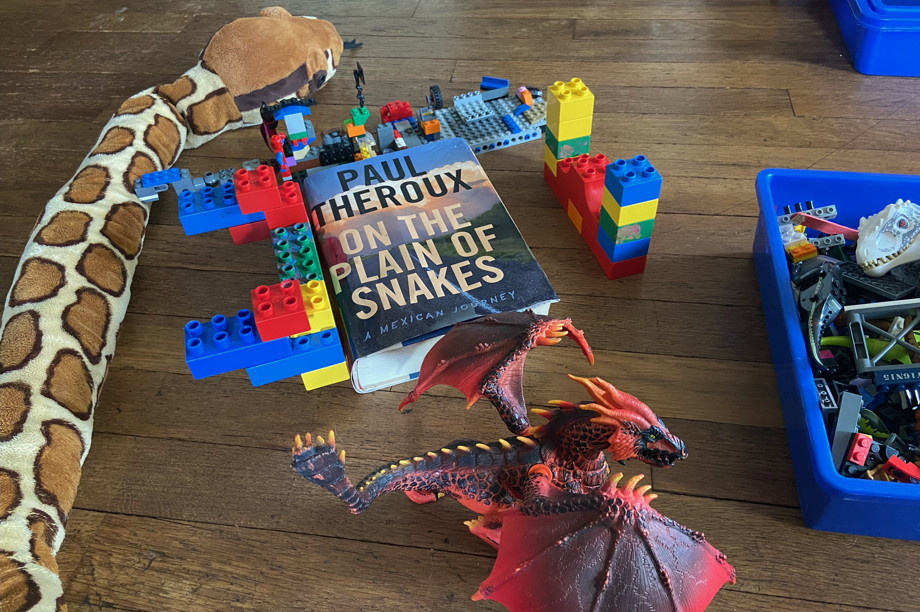
Review: On the Plain of Snakes (2019), by Paul Theroux. Arrangement by Francis Tann. May 2022.
Reading time: 5 minutes
Return to Blog Home
May 17th, 2022 at 11:32pm
Please consider disabling your ad blocker, it disrupts site functions in addition to blocking ads. Thank you!
Definitions are a terrible way to start.
Years ago, I would occasionally peruse editorials by the legendarily unimpressive Jonah Goldberg. It astonished me that anyone would feel compelled to write about politics through the lens of definitions. Countless -isms and -ists peppered Goldberg's commentary, and the way the politics of the day fit into those boxes served as the foundation of his analysis.
Background on this series is here.
Those unpleasant memories floated to the edge of my consciousness as I started reading Paul Theorux's On the Plain of Snakes, because the book often had me wondering what I was reading.
Is it travel writing? Of course.
And maybe...not entirely? At different times, one could call Theroux's book long form journalism, sociology, hagiography, a survey of Mexican literature, political history, a critique of capitalism, and so on.
I don't know France that well. I mean, yes, I know it very well. I know it a shit-ton better than you do, but I still don't "know" France. Not like Theroux is trying to know Mexico or teach us about it.
Perhaps On the Plain of Snakes stretches the travel memoir genre, nudging our expectations from El Paso, across the border to Juarez—but evaluating a creative work by the manner in which it conforms to a definition is the hobgoblin of intellectual amateurs.
So instead of falling into the Goldberg Trap™, I'll speak to the flip side of the genre issue: no matter how many other kinds of writing populate it—and because it contains them—On the Plain of Snakes is simply too long. A little over halfway through, I stopped giving a shit. Mexico, the border, bribes, secret roads, Theroux, his affinity for a meal of tacos and black coffee: I just didn't care anymore.
That's quite an achievement. I love Mexico, and sometime in 2017 or 2018, Paul Theroux helped me realize what I had been denying to myself for years: that I wanted to be a travel writer. Even though the author ends his tome with a tremendous flourish, I was relieved to be done with it.
The Layout
On the Plain of Snakes (the title comes from the name of a pueblo in Oaxaca) has five chapters:
- Borderlands: The US-Mexico border
- Mexico Mundo: Monterrey, San Luis PotosĂ, Mexico City, etc
- Oaxaca, the Inframundo: The city and state of Oaxaca
- The Road to Nueva Maravilla: The isthmus of Mexico, Chiapas
- The Way Back: Eight brief pages on Theroux's return to America
The itinerary makes perfect sense to an American. In his car with Massachusetts plates, Theroux starts in the north, moves along the border, travels south, then comes back. (He drives himself almost everywhere he goes, and, even though he has all required paperwork, his car is stopped by police on a few occasions, necessitating the payment of bribes.)
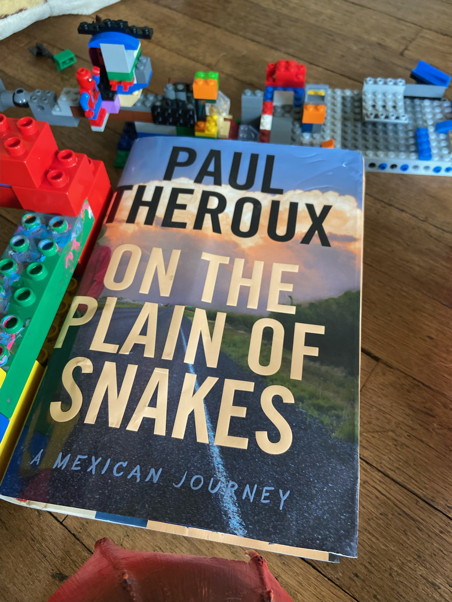
Lovely prose, but repetitive content, especially while he was near the border. |
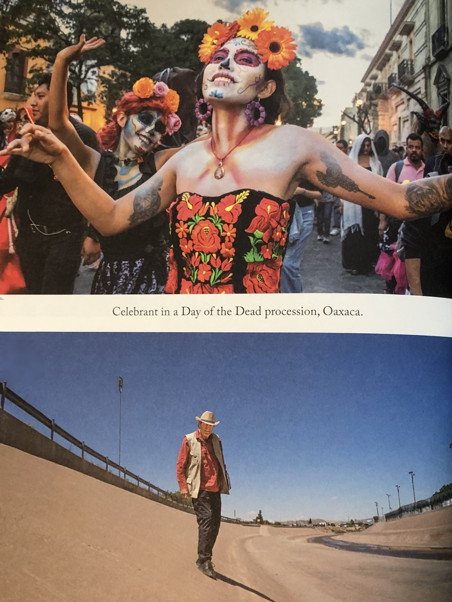
Mexico is such a beautiful country—more pictures wouldn't have hurt. |
The Launch
The opening pages of Borderlands soar with lyrical, erudite prose where the author reflects on Mexico as a locale and a concept. A beautiful, mysterious, frightening place of "thatness"—just like the author believes himself to represent.
We learn that prior to his trip, Theroux, in his mid 70s, is feeling ignored. "Granted, belittled, mocked." If a successful, internationally respected author is feeling superfluous, I can't imagine how I will greet my septugenarian years, if I even make it that far.
Putting judgment aside, however, I understood exactly what Theroux's remedy is, as does every dedicated traveler. And it works for him: "On the empty miles of these [Mexican] roads," Theroux writes, "I feel young."
Once again, the real question is not: Is this travel literature? but rather: Do we need this much detail?
So Much Pep
Energized and invigorated, Theroux zags along the border and interviews every person willing to talk to him. He tells us their stories, then he drives to a new place, observes its particular manifestation of the border (a wall, a door, an office, a river, etc), and talks to more people.
Theroux asks the locals about their experiences with "the mafia," as they call the drug gangs, as well as the state police, federal police, and army. They talk about going to America to work. Crossing the desert. Being arrested. Coming back to Mexico to visit family, but then finding themselves unable to return to the States. Falling in love in America. Having kids. Getting divorced. Physical and emotional separation. Being kidnapped to work as a slaves (literally).
He also talks to American Border Patrol officers about Mexico. Most have never been.
At first, it's fascinating. I knew that many Mexicans' stories were heartbreaking, but they quickly become a blur of sadness and, just as often, if not more so, humdrum life arcs: interesting to the person living them, not so much to anyone else.
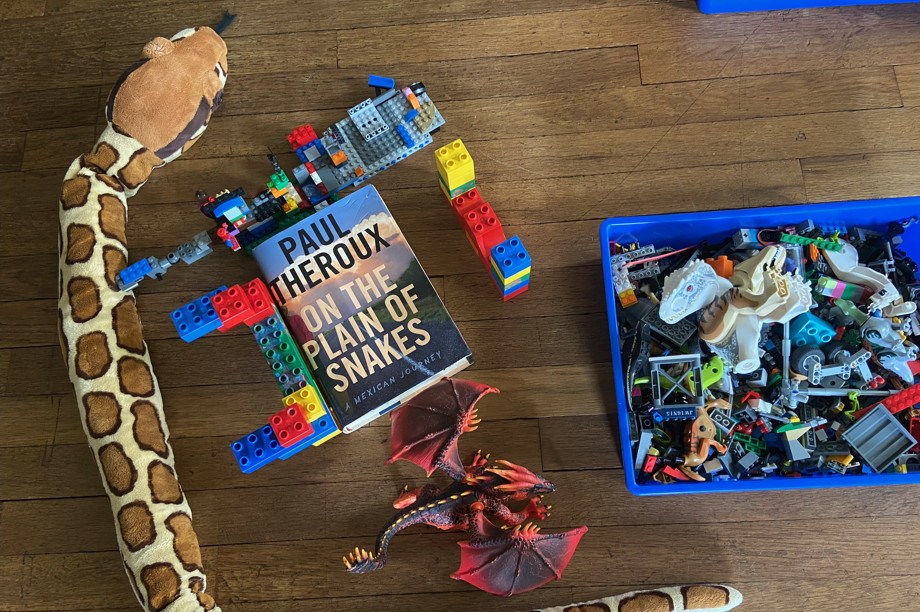
If I had written On the Plain of Snakes, the gatekeepers of the publishing world would have cut it in half—or simply rejected it. |
MĂ©xico Profundo
Once he leaves the border, Theroux writes about a dizzying number of experiences.
He barely curbs his annoyance at the privileged gringos of San Miguel de Allende, currently a darling city of the travel industry. In Mexico City, he teaches a writing class and makes several friends. He also explores the culture of Santa Muerte, a cult devoted to Our Lady of Holy Death, favored by drug gangs and the LGBTQ+ community.
In every region he visits, Theroux seeks out indigenous people, be they Huichol, Zapatec, Tzotzil, Mixtec, etc. He visits lovely churches and eats delicious food. He gets stuck in horrendous traffic jams and takes hidden side roads. He drinks mezcal and learns about the craft.
Gina Says:
- It's awesome, but it's too much.
- In some ways it's typical Theroux, perfect adjectives and beautifully written—enjoyable in that way.
- I don't need to know every word he said in Spanish class.
Theroux continues to talk to everyone, and we are privy to all the stories: traveling to America, indigenous culture, violence and corruption, art, the next village over, gangsters, farming, etc.
We also learn about Ayotzinapa, the horrifying tragedy where police killed forty-three protesting students in 2014. The bodies were buried in an undisclosed location, and nothing has been solved. Theroux and his interlocutors see Ayotzinapa as emblematic of so much of what is wrong in Mexico: distrust, corruption, terror, death.
We learn that Theroux, in his mid 70s, is feeling ignored. "Granted, belittled, mocked."
Mexicana or devastation, ordeal or anecdote, On the Plain of Snakes is in many respects a series of conversations with locals led by someone who has the time and money to spend months—years— fucking around in Mexico, and he wants to tell us every detail.
A Powerful Ending
The Road to Nueva Maravilla, about towns in the state of Chiapas, contains a marvelous section describing Theroux's trip to Oventic, where he visits the tomb of philosopher Luis Villoro. In the subsequent section, he speaks at a conference in San CristĂłbal de las Casas, where he meets El Sup, Subcomandante Marcos of the Zapatista Army of National Liberation.
From the moment Theroux arrives at the empty town with the ominous words over its locked gate, You Are in Zapatista Territory in Rebellion—Here the People Rule and the Government Must Obey, the secrecy of the rebels creates an undercurrent of tension. The author must pass lo-fi identification tests. He has to wait for approval to go places or take pictures. He is spirited away to the conference in a van. Everyone is wearing masks.
Mexico, the border, bribes, secret roads, Theroux, his affinity for a meal of tacos and black coffee: I just didn't care anymore.
And, just for fun, after Theroux's speech, Marcos reads a story about a rabbit to the audience. El Sup wrote it himself.
In the last eight pages of the book, Theroux returns to America in prose bullets points; the effect, rightly so, is to make Chiapas the highlight of the book.
The Final Word
I haven't spoken much of the digressions into Mexican literary, cultural, or political history, nor have I discussed the word-for-word recounting of intermediate Spanish lessons he takes in Oaxaca. As a former language teacher, I found them barely interesting. Perhaps others were fascinated, but I doubt it.
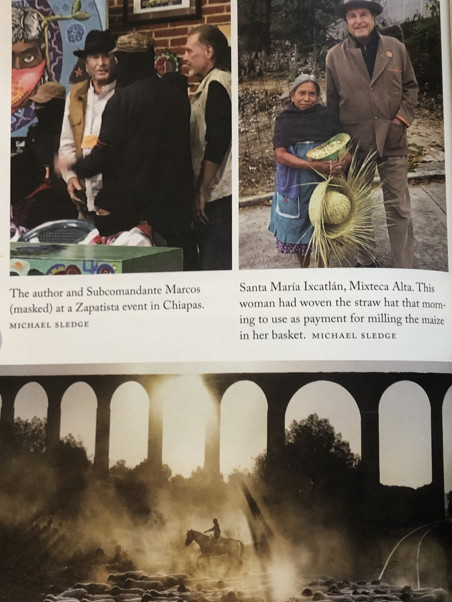
Some of the photos were interesting. |
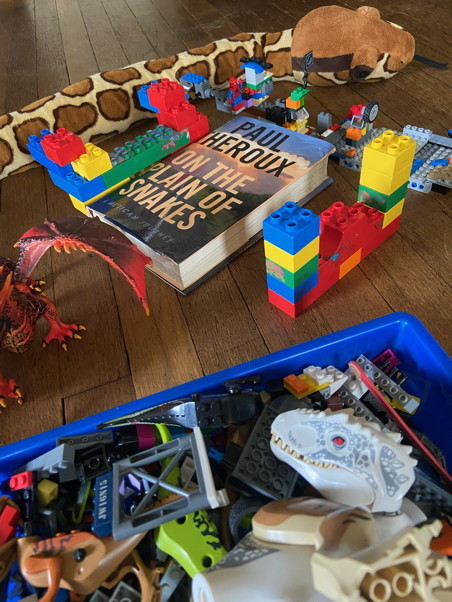
Language lessons aren't terribly interesting. |
Once again, the real question is not: Is this travel literature? but rather: Do we need this much detail?
I believe that we do not:
- I have neither the time nor the desire for such a plunge. A happy medium exists between vacuous sound bites in the captions of a travel magazine and Theroux's tome. I would've preferred that middle ground.
- Do we ever truly understand a foreign place from a book? No, we don't. Not even if the book is a 1000 pages long.
I lived in France for eighteen months. I've visited nine, maybe ten times. I'm fluent in the language. I've studied the history from Clovis to the Fifth Republic and literature from Chrétien de Troyes to Patrick Modiano. I played soccer for a college team that once had a match in a prison. I've traveled all over the country. I have a favorite Parisian bridge (Pont Neuf), but not yet a favorite pâtisserie. I've partied in countless Parisian apartments and nightclubs, hung out with Corsican terrorists, hitchhiked, gotten in fights, both verbal and physical, attended a bal des pompiers where crowds tearfully sang Johnny Hallyday. I've spent Christmas with families, had coffee with prostitutes at 4:00am, been to the hospital (and hit on my nurse), bought drugs from punks on the street (and got burned once), engaged in animated discussions with royalists, socialists, and communists. I've watched Le père Noël est une ordure because everyone in my generation over there loves it. I've attended sessions of the Senate and the National Assembly.
I assure you: I could go on. The point is that I don't know France that well. I mean, yes, I know it very well. I know it a shit-ton better than you do, but I still don't "know" France. Not like Theroux is trying to know Mexico or teach us about it.
On the Plain of Snakes is much too long at 436 pages, or pitifully incomplete.
Click here to list the 44 Reviews which have already been published.
L'Africain du Groenland
Volcanoes, Palm Trees, and Privilege
Blog Home
Recent Posts
Eyewitness Travel: France 4/24/2023
L'Africain du Groenland 8/2/2022
On the Plain of Snakes 5/17/2022
Volcanoes, Palm Trees, and Privilege 3/22/2022
L'axe du loup 2/28/2022
The Art of Travel 12/31/2021
Postcard: Los Angeles 11/5/2021
Afropean 8/6/2021
Roadrunner 7/22/2021
Popular Tags
Archive
Show moreAbout
Recent Tweets
If you toggle the switch above the words "Recent Tweets" and it still says, "Nothing to see here - yet," it means the idiot who broke Twitter either hasn't gotten around to fixing this feature, or intentionally broke it to get us to pay for it (which is moronic, I can easily live without it and it generated traffic to his site).


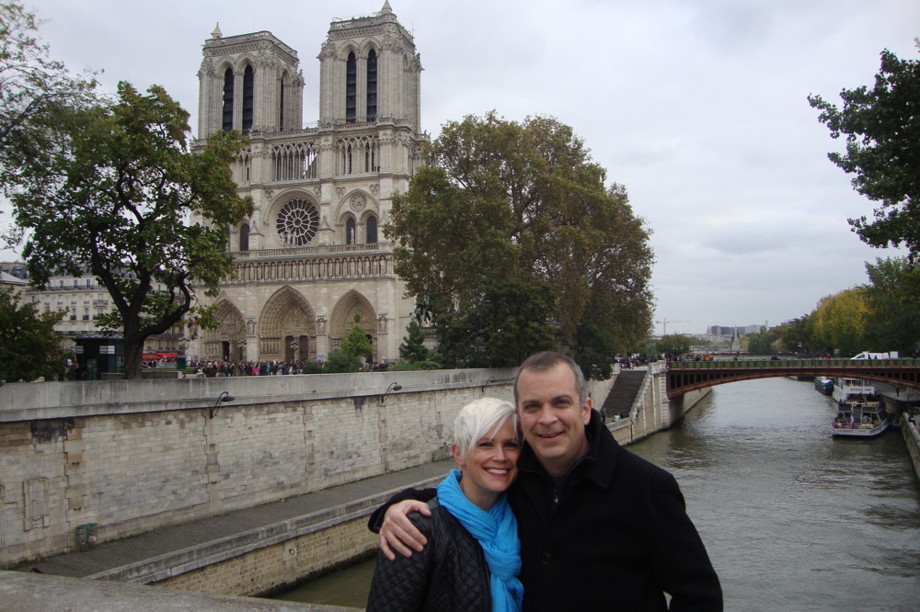

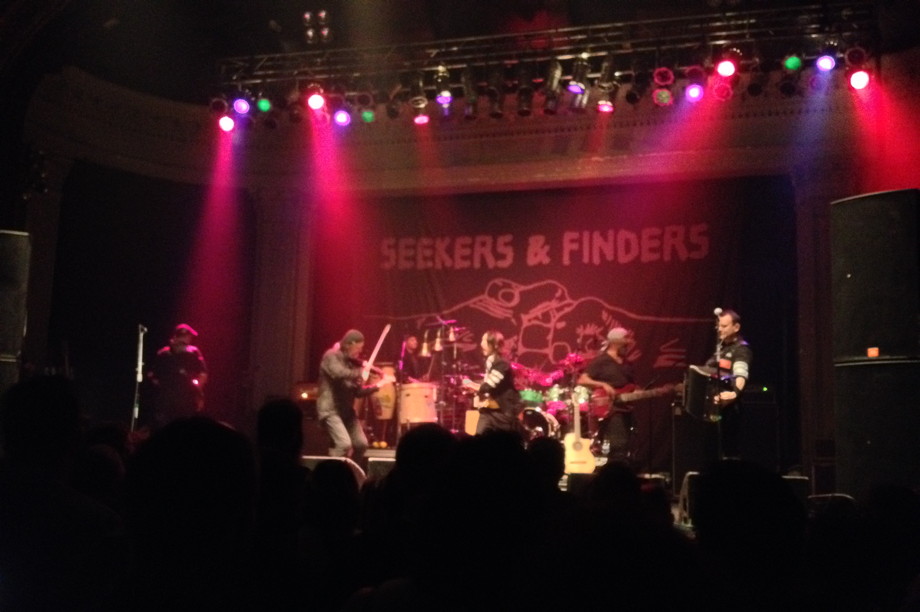

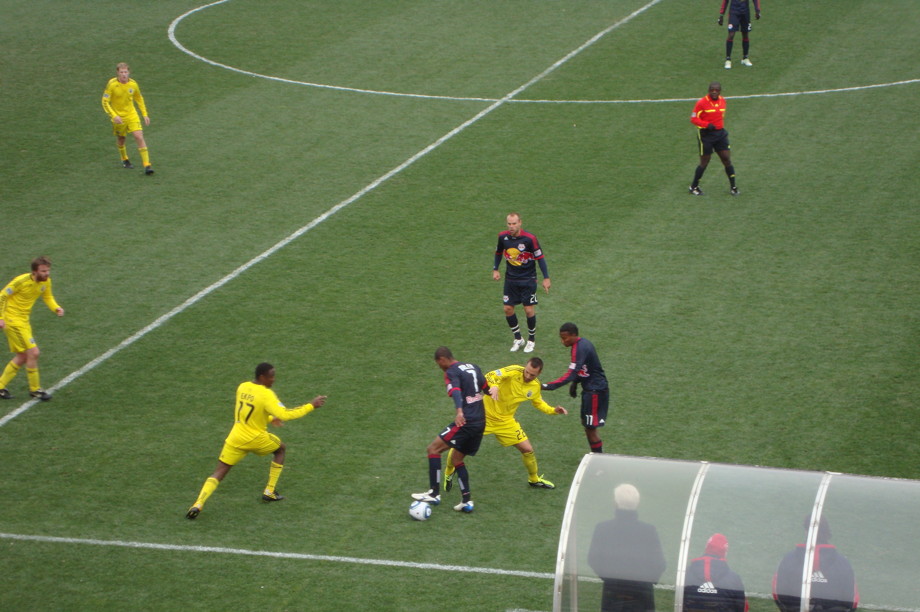
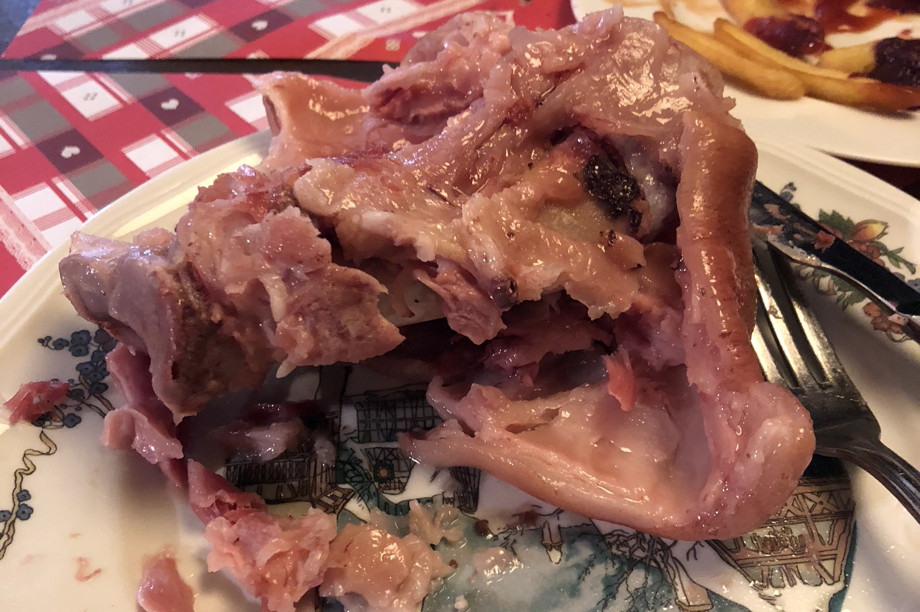
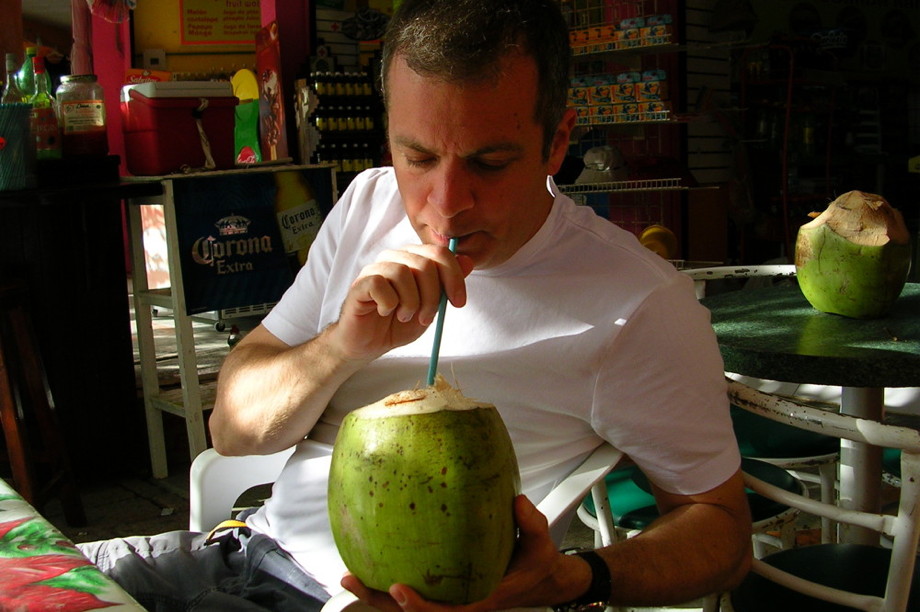
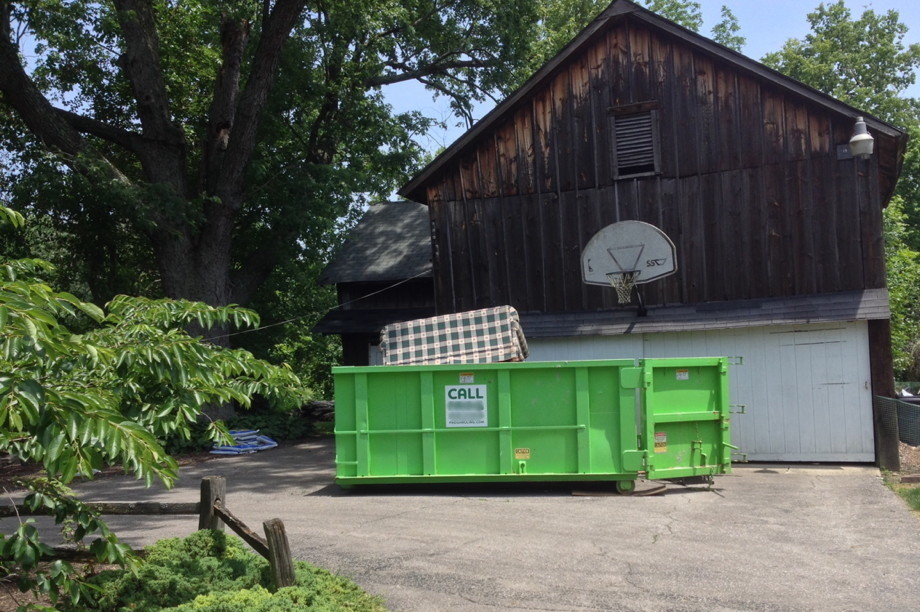


Add a comment
Comments